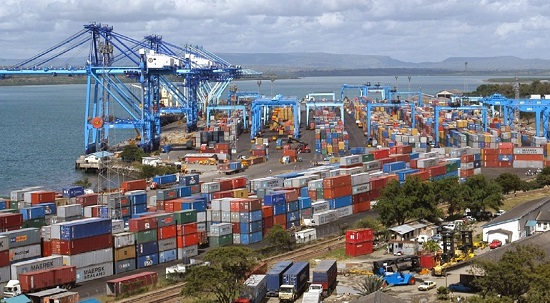
Kenya is exploring the establishment of sea-to-air multimodal hubs to enhance horticultural exports. This strategy would involve the direct transfer of cargo arriving by sea to airports for air transportation to both regional and global markets.
Examples from Dubai, Singapore, and Colombo show the effectiveness of such hubs in sea and air logistics. Dubai links Jebel Ali, the JAFZA Free Zone, and Al Maktoum International Airport through a bonded road corridor, while Singapore has established sea-air operations between its port and Changi Airport. Sri Lanka is also expanding the Colombo container terminal to enhance its sea-air transshipment capabilities. Global freight forwarders report that sea-air operations can be 50% faster and up to 40% cheaper than all-air routes.
In Kenya, a proposed bonded corridor between Mombasa Port and Mombasa Airport aims to emulate Dubai’s customs bond and monitored road feeder system. A free-trade zone near both the port and airport would facilitate quick movement of duty-suspended shipments, allowing for re-labeling and light processing before re-export.
This model would connect trade routes, enabling goods from Asia to reach Mombasa by sea and then be flown to Europe or the Middle East, benefiting mid-value products and horticultural goods reliant on cold chain logistics. Local proposals suggest that sea-air logistics could also mitigate delays from lengthy sea transits through the Suez Canal, offering alternative routes.
Additionally, there are opportunities along the Northern Corridor, with a potential bonded sea-to-air link between Lamu Port and Isiolo Airport via the Lamu Port-Southern Sudan-Ethiopia Transport Corridor, serving Ethiopia, South Sudan, Northern Kenya, and other landlocked regions in East, Central, and Southern Africa. This would help decentralize horticultural export logistics from Nairobi and reduce congestion.
The sea-to-air strategy aims to unlock production areas in Northern Kenya, enhancing sectors like livestock, meat processing, horticulture, and mining. By integrating with LAPSSET, regional competitiveness will improve, creating more transit options alongside Addis Ababa and Dubai.
Horticultural exports will benefit from expanded cold chain infrastructure linked to sea-air flows, enabling cost-effective and reliable transport of perishables to international markets while diversifying logistics. This will create jobs in cargo handling, warehousing, logistics, and cold chain management.
Proposed hubs in Mombasa and Isiolo are set to strengthen Kenya’s role as a regional gateway for perishable and mid-value goods, providing resilience against disruptions such as Red Sea insecurity, Suez Canal blockages, and limited airfreight capacity.
